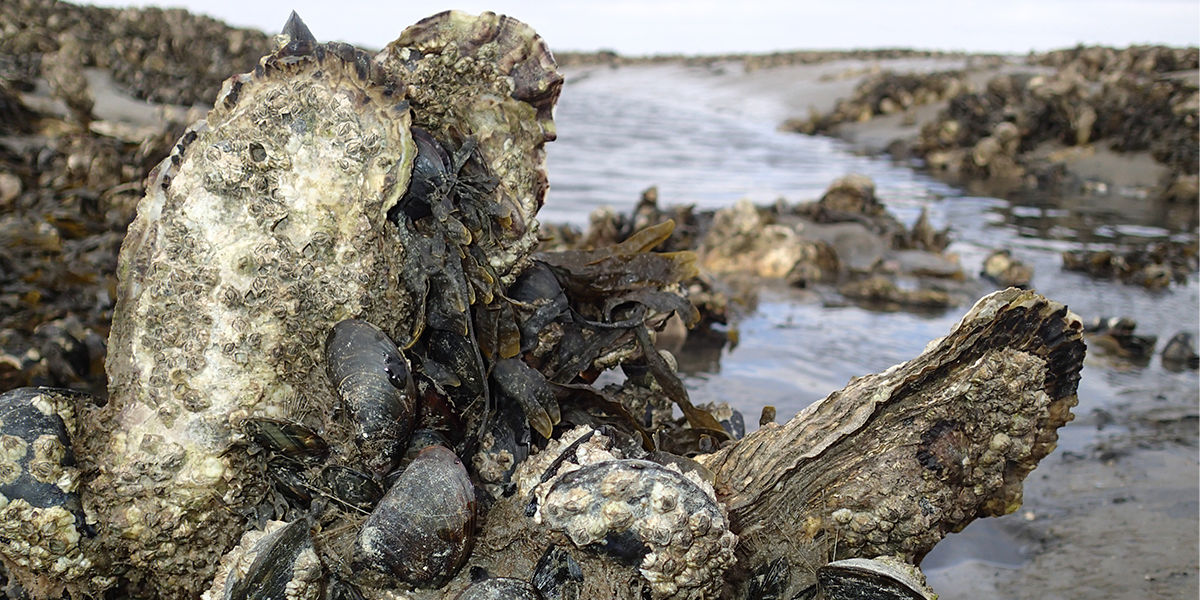Parasite invasions
Human actions can impact the structure and stability of ecosystems, altering the emergence and dynamics of infectious diseases. This project proposes to use a novel approach of combining empirical and experimental data with recently developed eco-epidemiological models to study the effects of two pervasive anthropogenic stressors, biological invasion and climate change, in the context of marine diseases. This cross-fertilization of experimental and theoretical approaches, matching the complementary expertise of the applicants and their collaborators, will help to advance the broader understanding of how ecological and epidemiological processes interact to drive the dynamics of parasites in their complex, changing natural environments.
|
|
|
Combining our empirical and theoretical expertise allows us to conduct frontier research on the effects of climate change on infectious diseases in marine ecosystems. |
| David Thieltges, Hans Heesterbeek |

Project Team

Project description
Background
It is increasingly recognized that human actions can affect the emergence and epidemiological dynamics of pathogens and parasites in ecosystems and identifying the underlying mechanisms is essential if we are to understand future emergence of infectious diseases in humans as well as in wildlife. Progress in understanding this complex topic demands the study of well-defined disease systems for which empirical and experimental knowledge can be obtained to constrain and test eco-epidemiological models addressing the complexity of ecological and epidemiological processes and their interactions.
This PhD project will follow this approach and combine existing and new experimental data with eco-epidemiological models to understand the dynamics of parasite invasions and the underlying ecological interactions in an ecosystem under climate change. Biological invasions are among the most pervasive anthropogenic stressors as they can change the structure and balance of invaded ecosystems in a variety of ways. These include the co-introduction of novel parasites, as well as affecting infectious disease agents already present. In some cases, co-introduced parasites can also infect native species (parasite spillover) and lead to emerging diseases. The resulting dynamics are likely mediated by climate change, another pervasive anthropogenic stressor, as disease dynamics are commonly affected by temperature, for example by modifying the production of infective stages, the susceptibility of hosts to infection or the impact of infections on host fitness.

Model system
The model system we focus on is the invasive parasitic copepod Mytilicola orientalis and related native species. The invasive parasite has been co-introduced with Pacific oysters to Europe and has spilled over to native hosts, in particular the blue mussel. Mussels are already infected by a related native copepod species and interactions occur between the two parasite species. Infections affect fitness in mussels directly but also indirectly (e.g., predation, secondary infections). These various components are affected by temperature and together with the fact that controlled experimental infections in the lab are possible, this makes this system ideal to study the interplay between climate change and parasite invasions and ecological interactions.
Project team
Utrecht University:
Prof. Dr. Hans Heesterbeek (PI)
NIOZ Royal Netherlands Institute for Sea Research:
Prof. Dr. David Thieltges (PI)
Dr. Anieke van Leeuwen
Dr. Marcel van der Meer
Alfred Wegner Institute, Germany:
Dr. Mathias Wegner
Massey University, New Zealand:
Prof. Dr. Mick Roberts
Overall aim
The overall aim of this interdisciplinary PhD project is to investigate the effect of climate change on the population dynamics of this prominent marine invasive parasite and its related native species following two objectives: 1) to experimentally determine the effects of temperature on key processes in the parasite-host interaction and 2) to mechanistically understand observed population dynamics of the parasites and to predict future changes using eco-epidemiological models.
The PhD project will be supervised by a multidisciplinary research team, consisting of two PIs and several national and international collaborators, with complementary expertise in empirical disease/parasite ecology and theoretical epidemiology.
Read more +
Connected themes
- Our Dynamic Coasts
- Sustainable Functioning of Coastal and Shelf Seas
